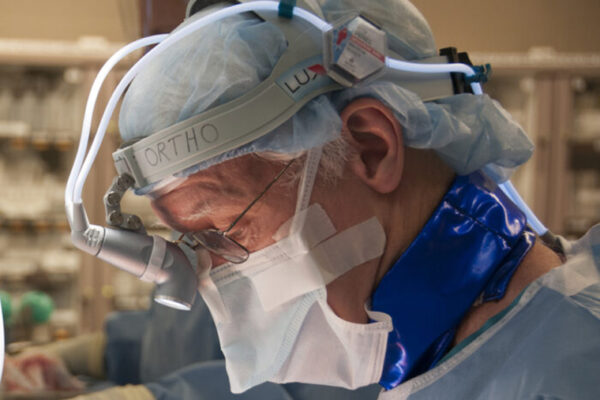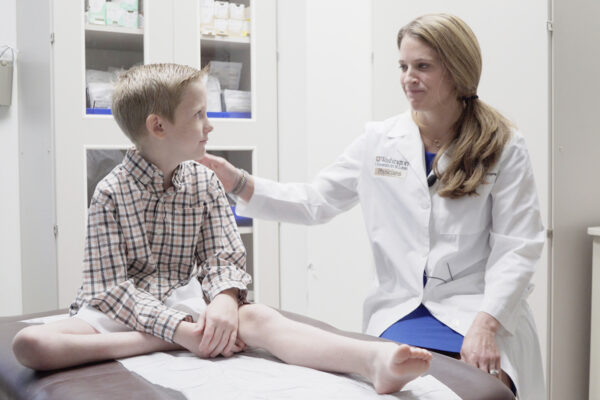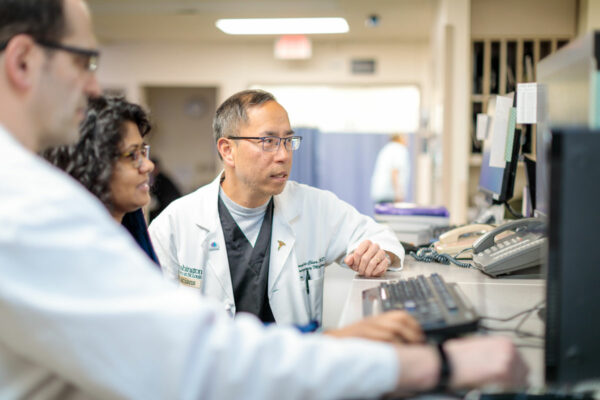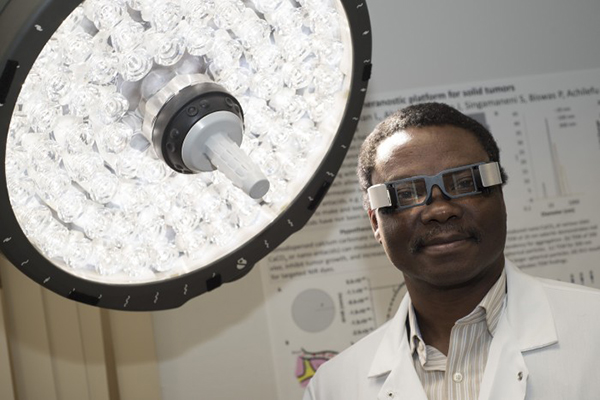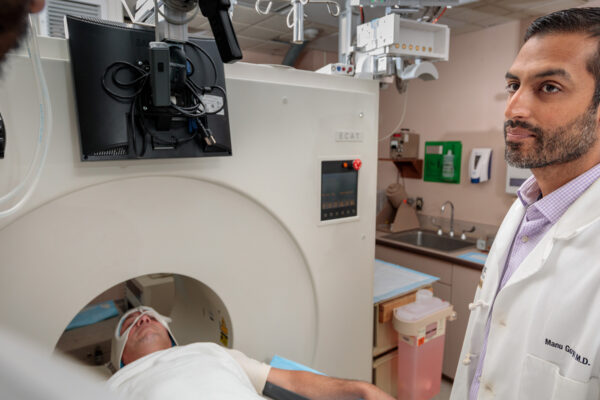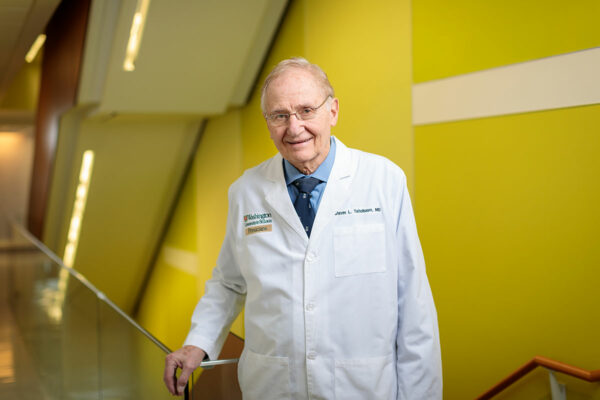For adult scoliosis, surgery, other treatments are viable options
A School of Medicine study of adults with lumbar scoliosis and found that the most important factor in determining whether to do surgery is the extent of a patient’s disability due to his or her spinal deformity, as well as how much that disability interferes with day-to-day life.
Three faculty members named microbiology fellows
The American Academy of Microbiology has named three Washington University in St. Louis faculty members as fellows: Gautam Dantas, of the School of Medicine, and Robert Kranz and Petra Levin, professors of biology in Arts & Sciences.
Nerve transfer surgery gives hope to children with rare paralyzing illness
School of Medicine surgeon Amy Moore, MD, has performed nerve transfer surgeries on children stricken with a rare paralyzing illness called acute flaccid myelitis. Researchers believe the condition may be caused by a common enterovirus.
Washington People: Douglas Char
Douglas Char, MD, professor of emergency medicine, helps people when they are at their most distressed. Char treats patients in the emergency rooms at St. Louis Children’s and Barnes-Jewish hospitals, but also helps out in major disasters as a member of a federal disaster medical assistance team.
Less anesthesia during surgery doesn’t prevent post-op delirium
One in four older adults experiences delirium after surgery. However, School of Medicine researchers have found that closely monitoring brain activity and minimizing anesthesia if needed has no significant effect on the occurrence of delirium.
Achilefu honored for achievements in biomedical optics
Samuel Achilefu, the Michel M. Ter-Pogossian Professor of Radiology at Washington University School of Medicine in St. Louis, is the 2019 recipient of the SPIE Britton Chance Award in Biomedical Optics. The annual award recognizes outstanding lifetime achievements in the field of biomedical optics.
Women’s brains appear three years younger than men’s
A new study from the School of Medicine finds that women’s brains appear to be about three years younger than men’s of the same chronological age, metabolically speaking. The findings could be one clue to why women tend to stay mentally sharp longer than men.
Drug target identified for chemotherapy-resistant ovarian, breast cancer
Researchers at the School of Medicine may have found a path toward improving the effectiveness of chemotherapy in people with breast or ovarian cancer caused by defects in one of the BRCA genes. The researchers identified a pair of genes that operate in parallel to BRCA and may increase susceptibility to chemotherapy drugs.
New clues discovered to lung transplant rejection
Researchers at the School of Medicine have discovered clues to a particularly deadly form of rejection that can follow lung transplantation. Called antibody-mediated rejection, the condition remains impervious to available treatments and difficult to diagnose. The researchers have identified, in mice, a process that may prevent the condition and lead to possible therapies to treat it.
Teitelbaum awarded 2019 King Faisal International Prize in Medicine
The School of Medicine’s Steven Teitelbaum, MD, has been awarded the King Faisal International Prize in Medicine for his work on bone biology. The award recognizes scientists whose work has major benefits for humanity.
View More Stories
